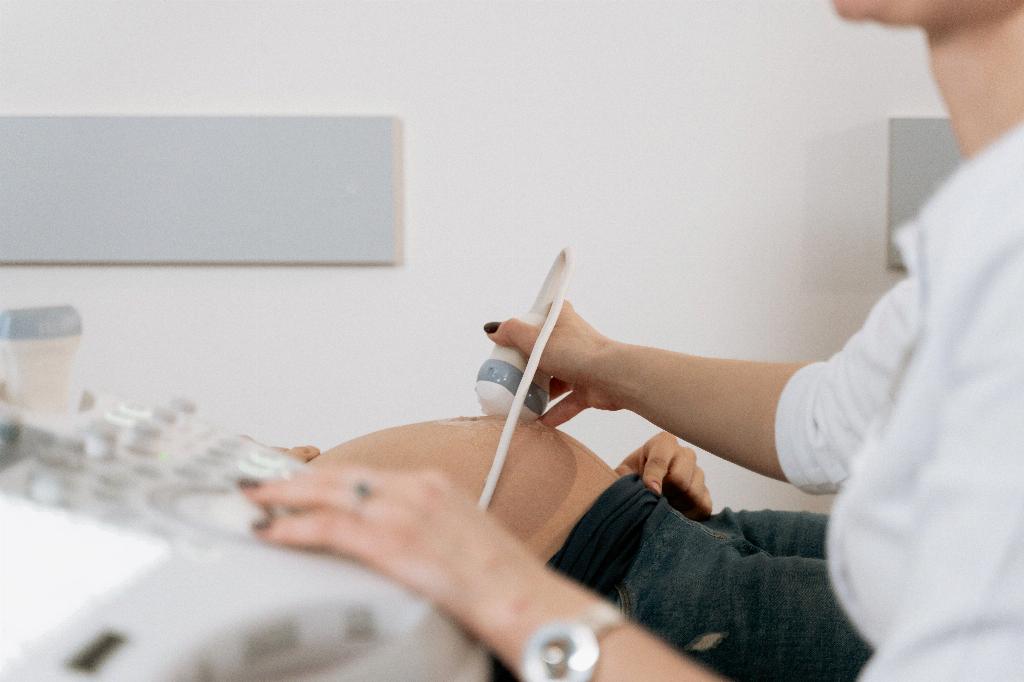During the third trimester of pregnancy, many women experience difficulty with sleep due to a variety of factors ranging from physical discomfort to hormonal changes. This can lead to insomnia, making it challenging to get the rest needed for the body to recuperate and prepare for the upcoming labor and delivery.
Medications to Aid Sleep
When it comes to managing insomnia during the third trimester, it is crucial to prioritize safety for both the mother and the unborn baby. Nonprescription options such as antihistamines like Benadryl (diphenhydramine) and Unisom (doxylamine) have been commonly used to help pregnant women get some much-needed rest. These medications can provide relief from insomnia without posing significant risks to the baby.
The Role of Melatonin
Another potential option for managing sleep difficulties during pregnancy is melatonin, a hormone that helps regulate the sleep-wake cycle. Although research on melatonin use during pregnancy is limited, some women find it beneficial for improving their sleep quality. As always, it is essential to consult with a healthcare provider before starting any new sleep aids, including melatonin.
Alternative Approaches to Sleep
Aside from medications, there are several alternative approaches that pregnant women can explore to improve their sleep quality during the third trimester. These may include practicing relaxation techniques such as deep breathing exercises, prenatal yoga, or meditation. Creating a soothing bedtime routine and optimizing the sleep environment can also contribute to better sleep.
Diet and Exercise Impact
It is important to pay attention to diet and exercise habits during pregnancy, as these factors can significantly influence sleep quality. Consuming a balanced diet, staying hydrated, and engaging in regular physical activity can help promote better sleep. However, it is advisable to avoid heavy meals close to bedtime and to limit caffeine intake, especially in the afternoon and evening.
Establishing a Sleep Schedule
Setting a consistent sleep schedule can be beneficial for managing insomnia during pregnancy. Going to bed and waking up at the same time each day helps regulate the body’s internal clock, making it easier to fall asleep and stay asleep. Creating a relaxing bedtime routine can signal to the body that it is time to wind down and prepare for sleep.
Managing Discomfort
As the baby grows in the third trimester, physical discomfort such as back pain, indigestion, and frequent urination can interfere with sleep. Using pillows to support the body, sleeping on the side with knees bent, and staying hydrated throughout the day can help alleviate some of these discomforts and improve sleep quality.
Seeking Support and Guidance
For pregnant women struggling with insomnia in the third trimester, it is essential to seek support and guidance from healthcare providers. They can offer valuable advice on managing sleep troubles during pregnancy, recommend safe and effective treatment options, and address any underlying medical conditions that may be contributing to insomnia.
Importance of Communication
Open and honest communication with healthcare providers is crucial when exploring sleep aids or remedies during pregnancy. It is essential to discuss any concerns or questions regarding medication use, potential side effects, and individual risk factors to ensure the safety and well-being of both the mother and the baby.
Monitoring Sleep Patterns
Keeping track of sleep patterns and any changes in sleep quality can provide valuable insights into how well interventions are working. Maintaining a sleep journal, noting any improvements or setbacks, and discussing these observations with healthcare providers can help tailor the approach to managing insomnia effectively.
Embracing Self-Care
Self-care plays a significant role in promoting overall well-being during pregnancy, including managing sleep disturbances. Taking time to relax, practicing self-soothing techniques, and prioritizing rest can contribute to improved sleep quality and overall physical and mental health. It is essential for pregnant women to listen to their bodies and prioritize self-care throughout the third trimester.
Conclusion
While insomnia during the third trimester of pregnancy can be challenging, there are various safe and effective strategies to help improve sleep quality and overall well-being. From considering nonprescription medications like antihistamines and melatonin to exploring alternative approaches and lifestyle modifications, pregnant women have options to address sleep troubles. By prioritizing self-care, seeking support from healthcare providers, and maintaining open communication about sleep concerns, women can navigate insomnia in the third trimester with greater ease.

